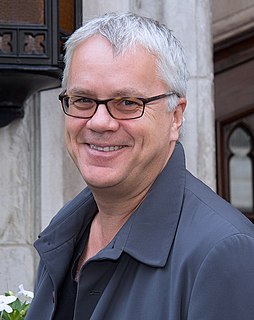A Quote by Donald Trump
Mike Flynn is a fine person, and I asked for his resignation. He respectfully gave it. He is a man who there was a certain amount of information given to Vice President Mike Pence. And I was not happy with the way that information was given. He didn't have to do that, because what he did wasn't wrong - what he did in terms of the information he saw. What was wrong was the way that other people were given that information, because that was classified information that was given illegally. That's the real problem.
Related Quotes
Normally if you add information to information, you have more information. In case of my art, I destroy information, I would say, because the image is disturbed by the writings. In a way, they become pure imagery. For me it's really fun because it's an idealistic approach to images, to just play around with information and see what's happening.
I was adopted. I was born in Edinburgh, and adopted when I was about two weeks old. And it's a good thing, I think, really, that back then, in '75 when I was born, you were really given a lot more information than you're given now when you're adopted. And you know, you can access that information when you're older.
Only a very small number of the e-mails containing classified information bore markings indicating the presence of classified information. But even if information is not marked 'classified' in an e-mail, participants who know or should know that the subject matter is classified are still obligated to protect it.
Our investigation looked at whether there is evidence classified information was improperly stored or transmitted on that personal system, in violation of a federal statute making it a felony to mishandle classified information either intentionally or in a grossly negligent way, or a second statute making it a misdemeanor to knowingly remove classified information from appropriate systems or storage facilities.
You have this certain about of responsibility to play a fictitious character and you have a script that's guiding you and the other information of the custom department's choices, and the set department, "Where are you," and all those other pieces of information but you have to cull from your imagination the answer to all the unasked questions. And with a real person, there's someone to get that information from, perhaps.
I don't think we should have less information in the world. The information age has yielded great advances in medicine, agriculture, transportation and many other fields. But the problem is twofold. One, we are assaulted with more information than any one of us can handle. Two, beyond the overload, too much information often leads to bad decisions.































